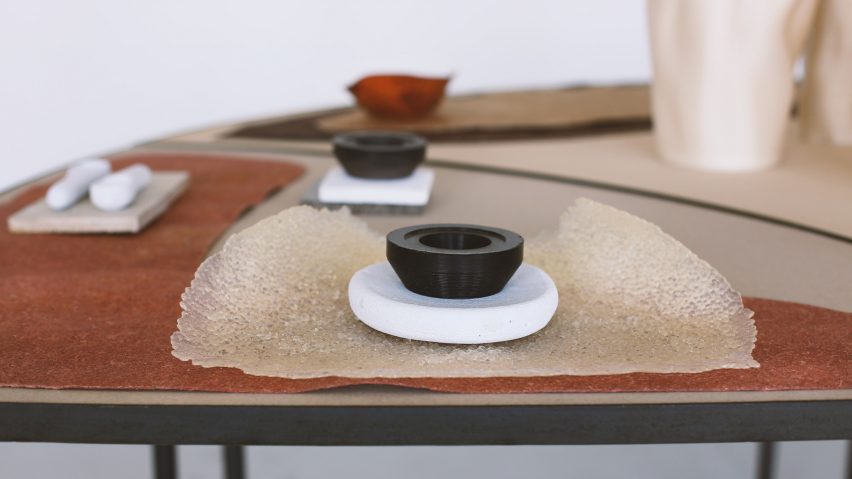
Studio.traccia shows food-waste table and crockery at Milan design week
Milan-based architecture and design practice Studio.traccia has designed and curated an installation at Milan design week that comprises a modular table and objects crafted from food waste.
Titled Tabula [non] Rasa, the installation-cum-table setting was developed in collaboration with a collection of designers, researchers and companies in an effort to explore the possibilities of food-waste recycling.
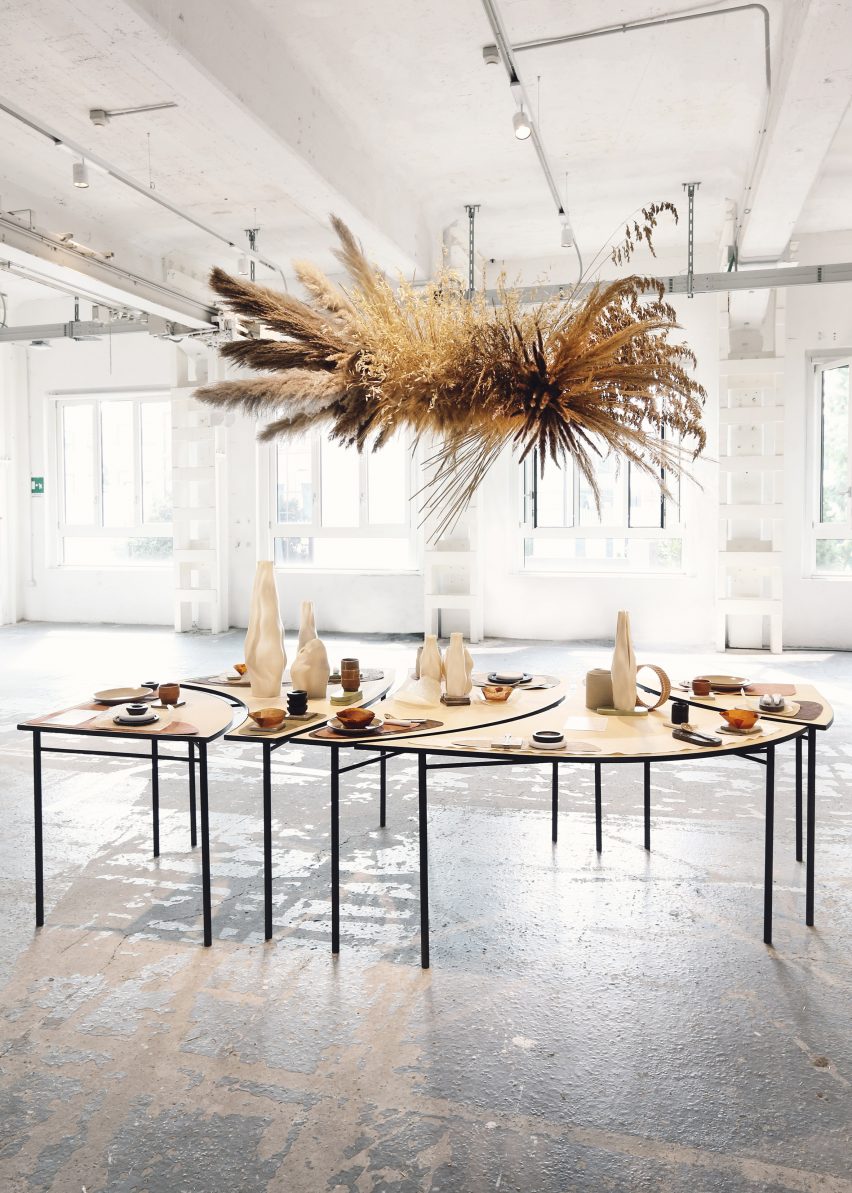
The installation is on display at the BASE Milano exhibition in Zona Tortona as part of the 2021 edition of Milan design week.
"It's a table that is made from organic waste and we wanted to invite every designer and brand involved with food waste research to design objects," Studio.traccia co-founder Luigi Olivieri told Dezeen.
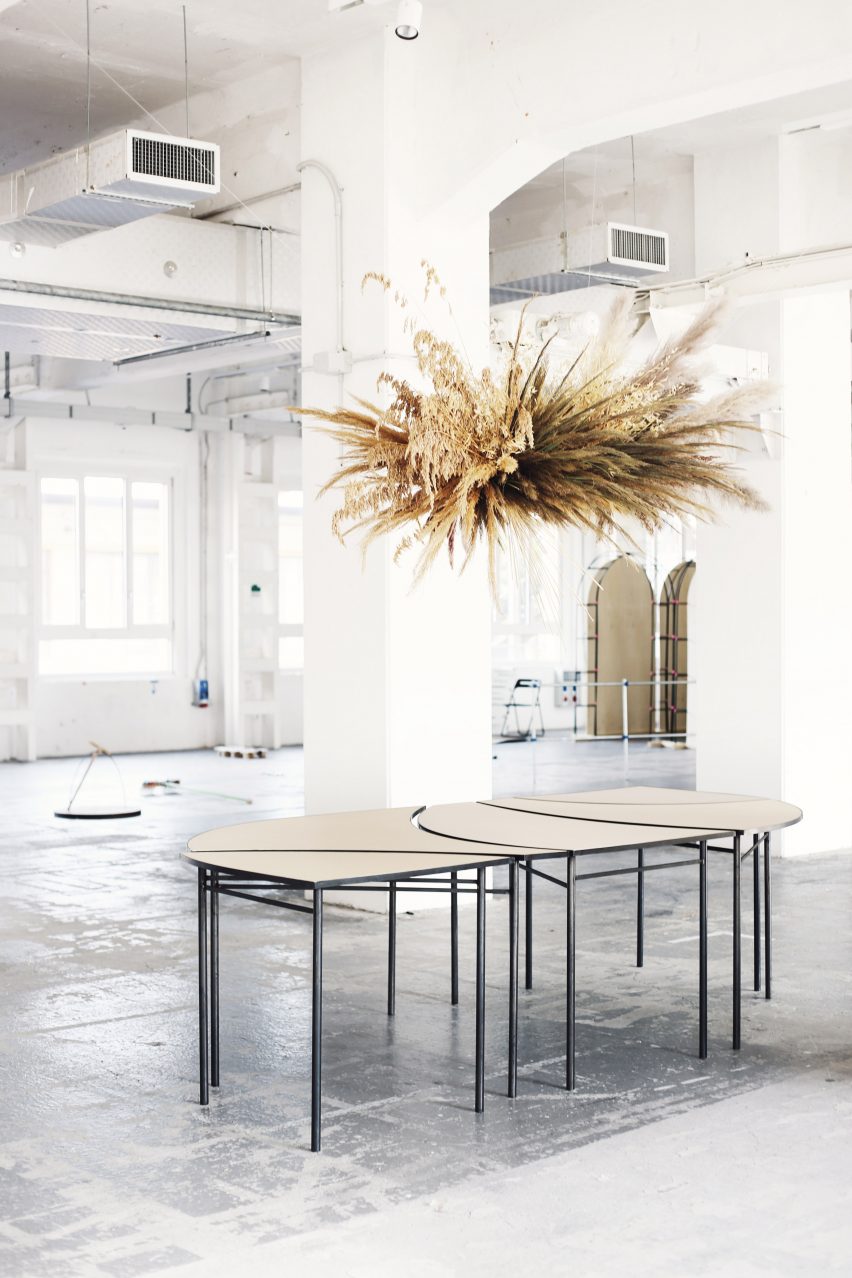
The studio explained that around twenty per cent – roughly 931 million tonnes – of food produced for human consumption is wasted each year.
"Food [recycling] is one research that is currently not developed yet," said Olivieri.
"A lot of people are recycling other products like plastic, waste from oil, industrial products, steel and concrete, but no one is really exploring [recycling] food."

The table shown at the exhibition was created by Studio.traccia as a modular design, with each piece forming its own individual table. These can then be combined to create a larger table.
Its tabletop was created by Mogu, a European brand that uses mycelium-based technology to develop sustainable materials, and was constructed using bio-based resin and food waste including rice, straw, corn crops, coffee grounds, algae and shells. It rests on steel legs.
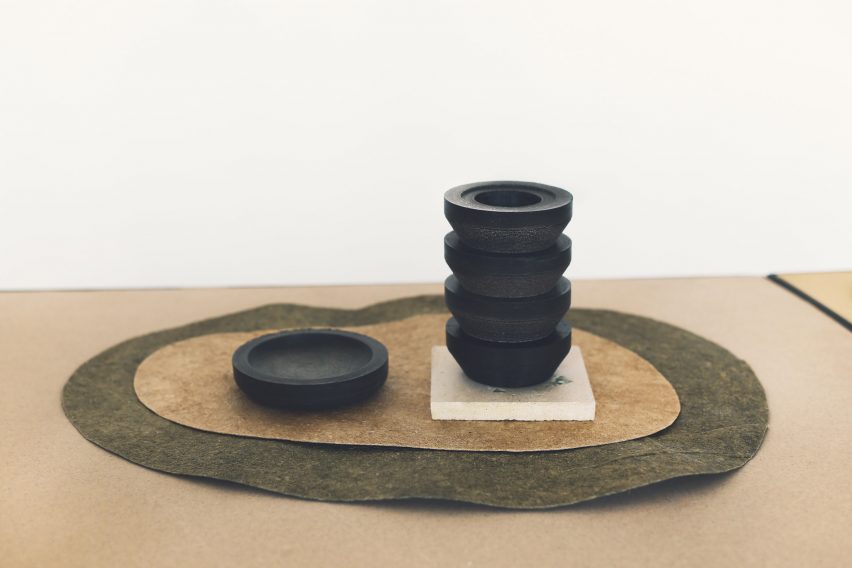
The Studio.traccia-designed table was then topped with tableware and objects that were also crafted from food waste.
"The food was something you ate and now it becomes something you eat from," said Studio.traccia co-founder Claudia Orsetti.
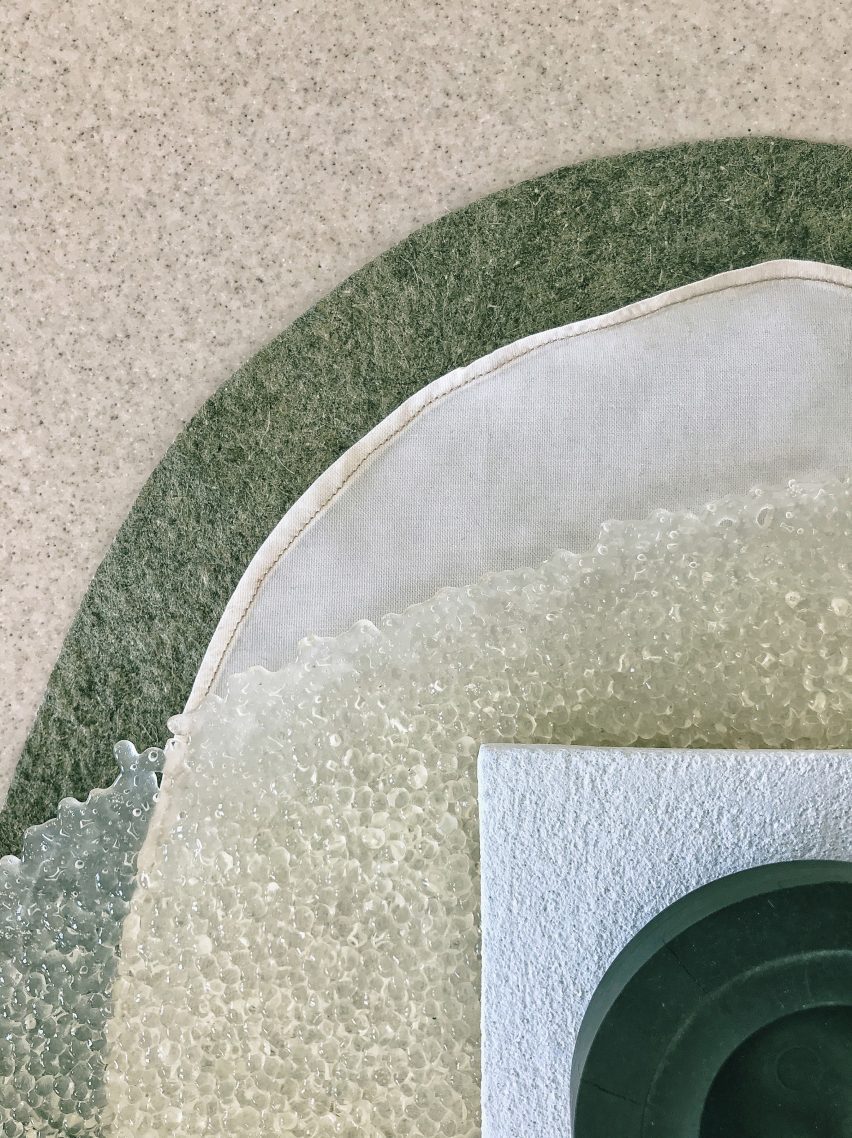
Each place setting was framed by organically shaped placemats. The mats were made by Malai using waste-fibres from fruit and vegetables, and were individually shaped to perfectly fit the forms of each table module.
Individual, rounded tablecloths by Orange Fiber were also used for the table setting. Each was derived from citrus juice byproducts by extracting cellulose from the fruit peels and weaving it into yarn.
"The use of organic waste for the creation of new materials that could replace traditional ones is only one of the possible paths that must be urgently explored," said the studio.
"It is a way of relating two separate problems, which together have the capacity to produce reciprocal solutions, and at the same time to generate positive effects on a social, economic and environmental level."
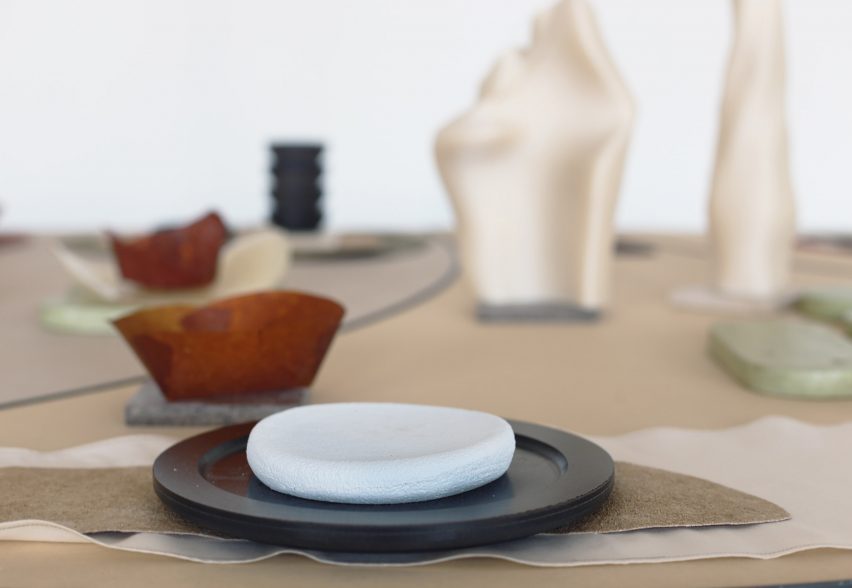
Artist and designer Basse Stittgen created bowls and plates from discarded cows' blood collected from slaughterhouses.
Beneath the blood-formed bowls sits plates by Midushi Kochhar, which were made from calcium-based waste from bio-materials such as eggshells.
Crafting Plastics' contribution to the installation included towering beige-hued bio-plastic vases and semi-transparent placemats that were similarly made using corn bio-plastics.
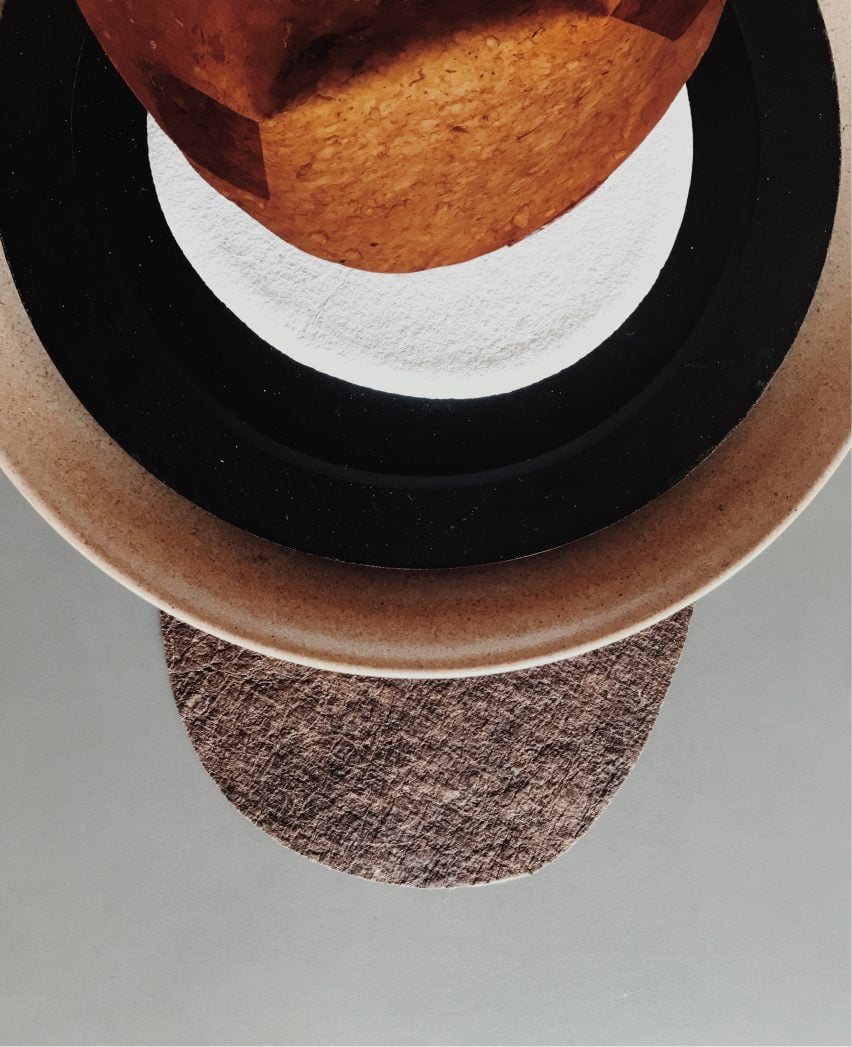
Translucent bowls made from recycled microbial cellulose, developed by designer and researcher Emma Sicher, as well as plates by Rice House were also shown as part of the display.
Squared, coaster-like ornaments by Korean research studio Newtab-22 were constructed using discarded seashells and rest beneath cups by Repulp Design derived from citrus waste.
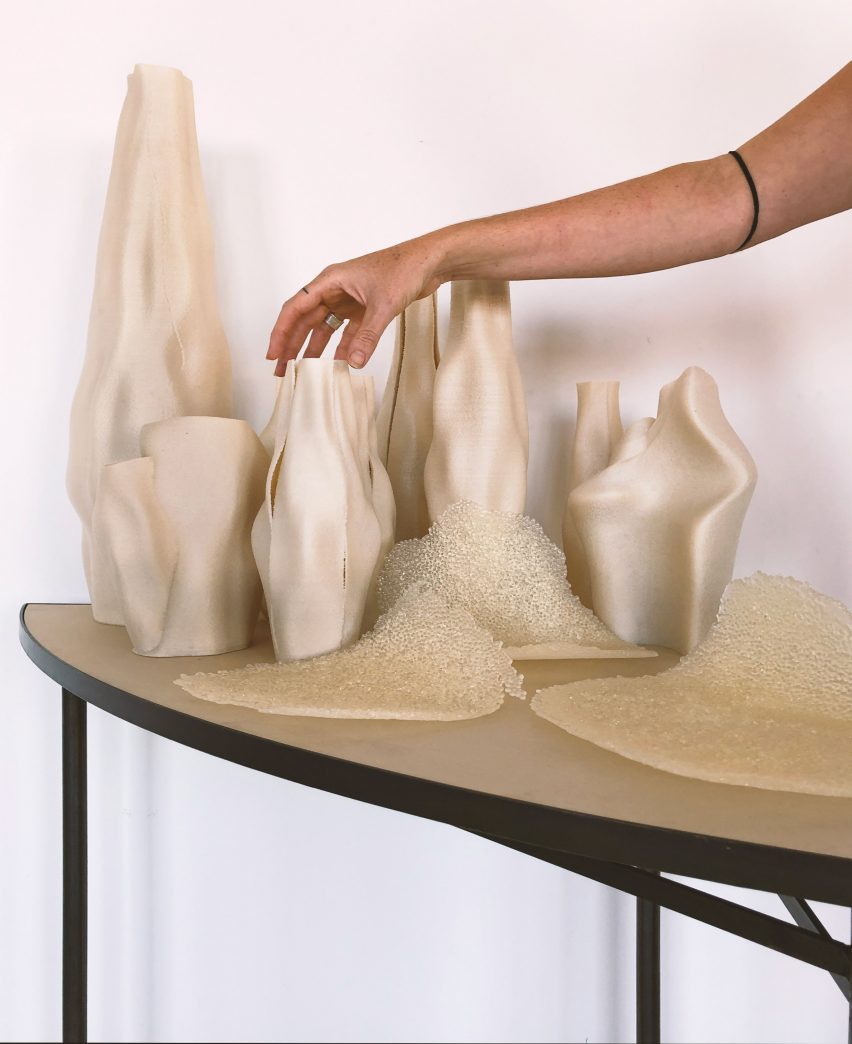
Other projects on display at this year's Milan Design Week include a scented bioplastic room divider by Crafting Plastics and Office MMK and a powercut-resilient incubator by Fabien Roy that protects babies from hypothermia.
Tabula [non] Rasa will be on display at the BASE Milano exhibition as part of Milan Design Week, which takes place from 5 to 10 September 2021. See Dezeen Events Guide for all the latest information you need to know to attend the event, as well as a list of other architecture and design events taking place around the world.